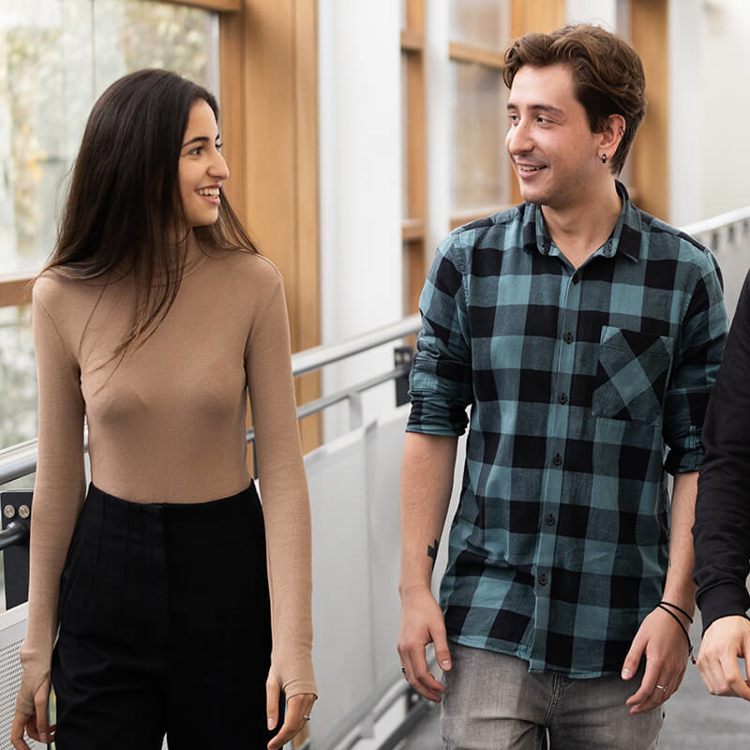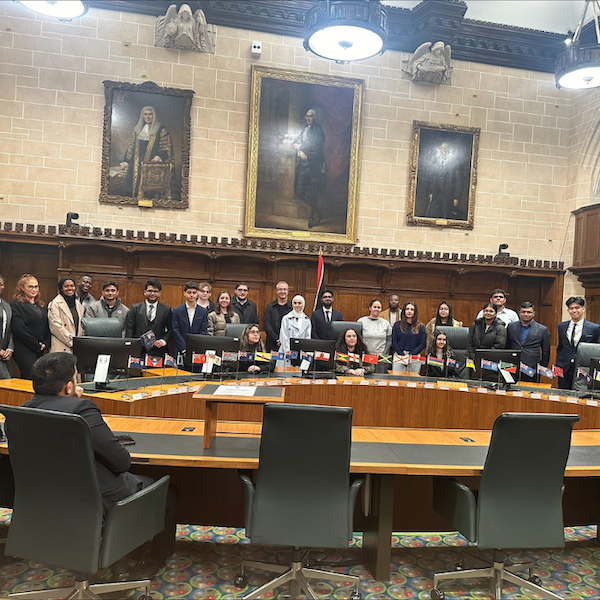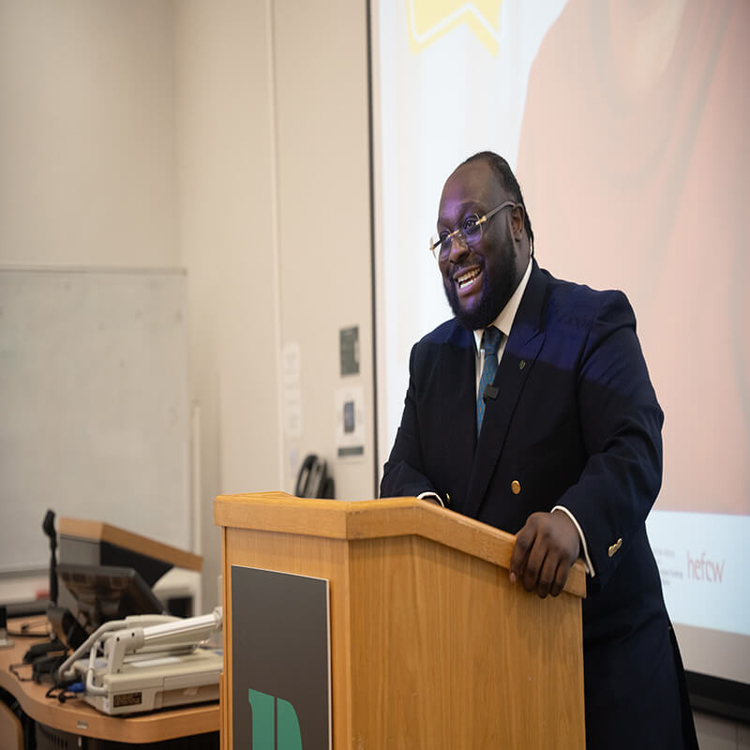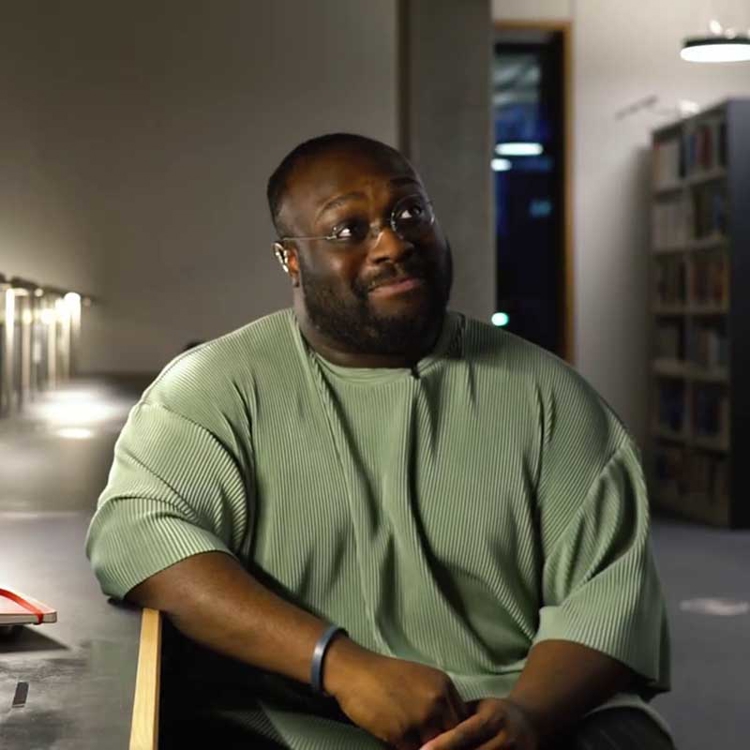
Law Society legal tour trip to the UK Supreme Court
The Law Society took a group of Roehampton law students on an inforgettable trip to the UK Supreme Court - the highest court in the country!

A day in the life of a second-year law student
Esra Tasdemir
Hey everyone! I’m Esra Tasdemir, a second-year Law student at the University of Roehampton and this is a day in my life living on campus.
My journey to becoming a solicitor
Elesha Bradford, 2022 graduate
I started my undergraduate law degree at Roehampton Law School in 2016, and from the first day it was clear that my experience would be a positive one. The academic and non-academic opportunities were endless, and I was excited for the doors that would open to kickstart my career in law.
I knew from the start that I wanted to be a solicitor, but I knew little about the process and how to achieve my goal. The Careers Team guided me through the steps involved from beginning to end. They also helped me to set personal targets in order to ensure I was working at the appropriate level required to give me the best chances when making applications for a training contract.
I knew from the start that I wanted to be a solicitor, but I knew little about the process and how to achieve my goal. The Careers Team guided me through the steps involved from beginning to end. They also helped me to set personal targets in order to ensure I was working at the appropriate level required to give me the best chances when making applications for a training contract.
The team also supported me in how to prepare training contract applications and conduct myself in interviews. Using the skills I acquired during my time at the Law School, I was offered a training contract in and I am now undertaking my first training seat.
My most memorable experience from my time at Roehampton Law School is the unconditional support from peers, tutors and the Careers Team.
There is always someone on hand to answers any questions or queries you have, whether it be about the course content, assessments, or general career advice.
In addition to this, the personal style of teaching is unique, and sets the Law School apart from others.
The workshops provide a fantastic opportunity to discuss legal issues with other students, and I believe they truly prepare you for working within the legal profession.
I continue to use the skills I learnt in these workshops as a Trainee Solicitor, and I’m grateful for the high standard delivered when I was a student, which has ultimately shaped the way I approach issues in the workplace today.
My journey into law
Malcolm Glover, third-year law student
As opposed to wondering “why” I decided to become a barrister, I said: “why not?” This was followed by a fire in my belly of determination and enthusiasm to study law.
While for some it was season three of 'Suits' which inspired them, I knew a career at the bar was for me when I saw those famously dashing wigs (perukes to those in court!).

The importance of extra-curricular activities
Shomamar Best, 2021 graduate
I attended the University of Roehampton and graduated in 2021 and I now work full-time as a Legal Assistant at Invicta Law – a public sector legal services law firm based in West Malling.
My role includes organising files and supporting solicitors by drafting documents, researching relevant points of law where necessary, note taking, and handling finances in the form of raising transactional requisitions from clients for each matter.
I feel like securing a legal job so soon after graduation is in part due to the extra-curricular and co-curricular activities I participated in during university.
A lot of students go to university with the mindset that 'as long as I get a 2:1 or a first I’ll be set to get a job once I graduate'. Unfortunately, the likelihood of you getting a legal role based off of your academic achievements alone are rare if not, non-existent.
By participating in some of Roehampton’s extra- and co-curricular activities I believe I became a more rounded candidate in the application process. My only regret is not looking into more activities in my first year to participate in that could have pushed me further. These opportunities exist, you just have to look for them.
For reference whilst at university I was:
- The Master of the moots’
- Law Society President (Running for a committee position is a great way to show that you are committed to a career in law, and a great way to demonstrate that you have a keen interest in improving the general student experience).
- Participating in Roehampton Law Clinic
- Working part-time and;
- Volunteering where and when I could
One of the greatest benefits of taking part in extracurricular activities is that it offers transferable skills which if utilised correctly can make you more desirable to employers. These skills include (but are not limited to):
- Communication
- Teamwork
- Problem solving
- Time management
- Leadership
Although you probably may have other responsibilities outside of university, make sure you consider the benefits of extracurricular activities and how to balance both your academic work and activities to help you in the future.
The experiences you will gain from participating in meaningful activities will help you with everything during and after university, including getting a part-time job, a placement year or a graduate job.
A lot of opportunities are being made available now that restrictions are easing so, go take time to find and join a society, take part in a programme or volunteer.
Studying for my LLM
Recent law graduate
The LLM Human Rights and Legal Practice programme was as described on the university website. I enrolled in the course because I wanted to learn more about human rights and the legal approach, so I could continue working with Amnesty International UK and follow my passion to make the world a better place for everyone.
The course equipped me with the exact missing pieces for human rights career progression. It was very informative and very helpful for an aspiring human rights devotee.
The course materials were well structured, organised and focused on practical situations and cases. And the library was accessible even though the learning process was during the pandemic. I had access to most of the articles, journals, cases, and e-books that I needed to complete my assessments during the lockdown.
I was faced with lots of personal challenges in the middle of my course, but the amount of support I received from the academics was touching and remarkable. Even after I finished the course, I could still go to my learning materials and the library to get additional knowledge in the legal field to fill the gap.
After finishing my dissertation on business and human rights, I decided to pursue a PhD on the same topic and began campaigning on corporate due diligence in conflict-affected areas, and I'm still working my way up to the campaign's launch.
"he course gave me lots of curiosity and knowledge for my career goal, and I am looking forward to starting my PhD this September after securing a scholarship. Thank you, Prof. Jeremie Gilbert and Dr. Daniel Aguirre, for your relevance and constant support.
My journey into law
Julia Cwierz, law graduate
As a law student I was able to choose a pro bono initiative with Citizens Advice as one of my modules. As an aspiring solicitor, I was thrilled that I would be able to practice and extend my legal knowledge while helping others.

Securing a training contract
Aimee Peacock, law graduate
There are endless resources online that will tell you there are certain steps to securing a training contract; get work experience, involve yourself in extra curriculars, be commercially aware and prepare for a lot of rejection. Whilst all those things are true, and you do need to consider them all, what I found imperative to being successful in my training contract interviews was mentoring.
Mentoring does not always have to come from strangers, as I understand reaching out to people you have met once in passing is unnerving sometimes.
I feel like securing a legal job so soon after graduation is in part due to the extra-curricular and co-curricular activities I participated in during university.
A lot of students go to university with the mindset that 'as long as I get a 2:1 or a first I’ll be set to get a job once I graduate'. Unfortunately, the likelihood of you getting a legal role based off of your academic achievements alone are rare if not, non-existent.
By participating in some of Roehampton’s extra- and co-curricular activities I believe I became a more rounded candidate in the application process. My only regret is not looking into more activities in my first year to participate in that could have pushed me further. These opportunities exist, you just have to look for them.
For reference whilst at university I was:
- The Master of the moots’
- Law Society President (Running for a committee position is a great way to show that you are committed to a career in law, and a great way to demonstrate that you have a keen interest in improving the general student experience).
- Participating in Roehampton Law Clinic
- Working part-time and;
- Volunteering where and when I could
One of the greatest benefits of taking part in extracurricular activities is that it offers transferable skills which if utilised correctly can make you more desirable to employers. These skills include (but are not limited to):
- Communication
- Teamwork
- Problem solving
- Time management
- Leadership
Although you probably may have other responsibilities outside of university, make sure you consider the benefits of extracurricular activities and how to balance both your academic work and activities to help you in the future.
The experiences you will gain from participating in meaningful activities will help you with everything during and after university, including getting a part-time job, a placement year or a graduate job.
A lot of opportunities are being made available now that restrictions are easing so, go take time to find and join a society, take part in a programme or volunteer.
In conversation with Malcolm Glover
President of the Law Society
My name is Malcolm Glover, I am a second-year law student at The University of Roehampton and President of the Law Society.

